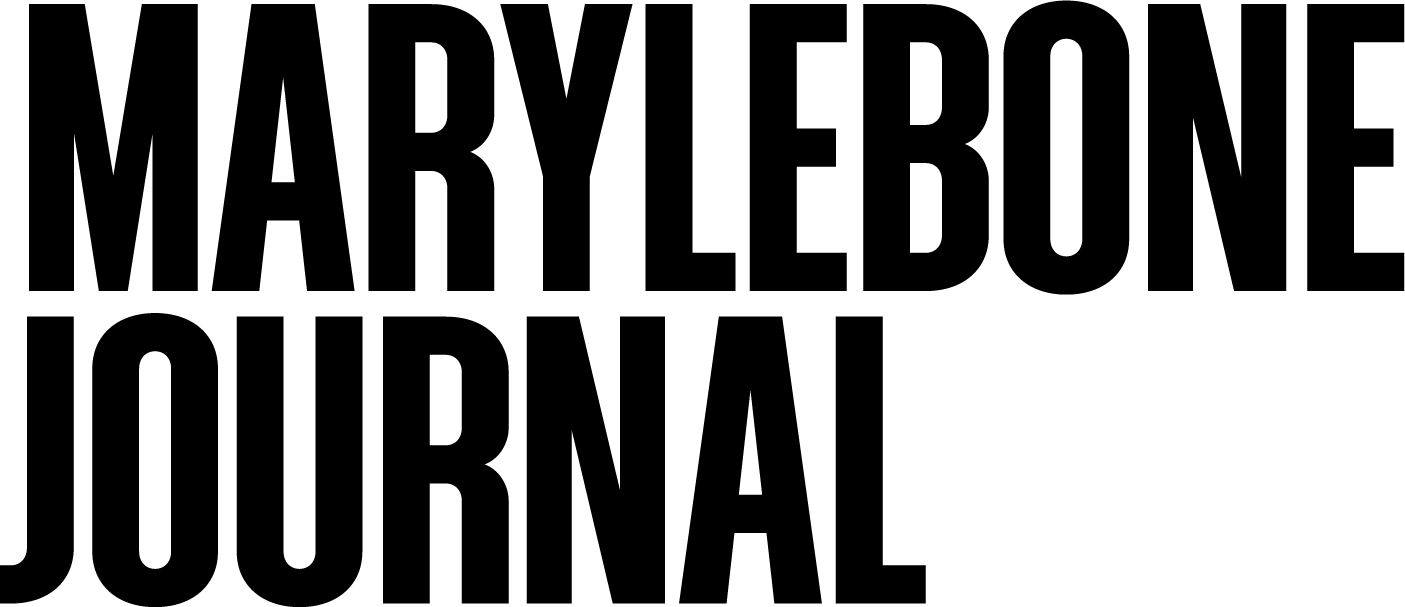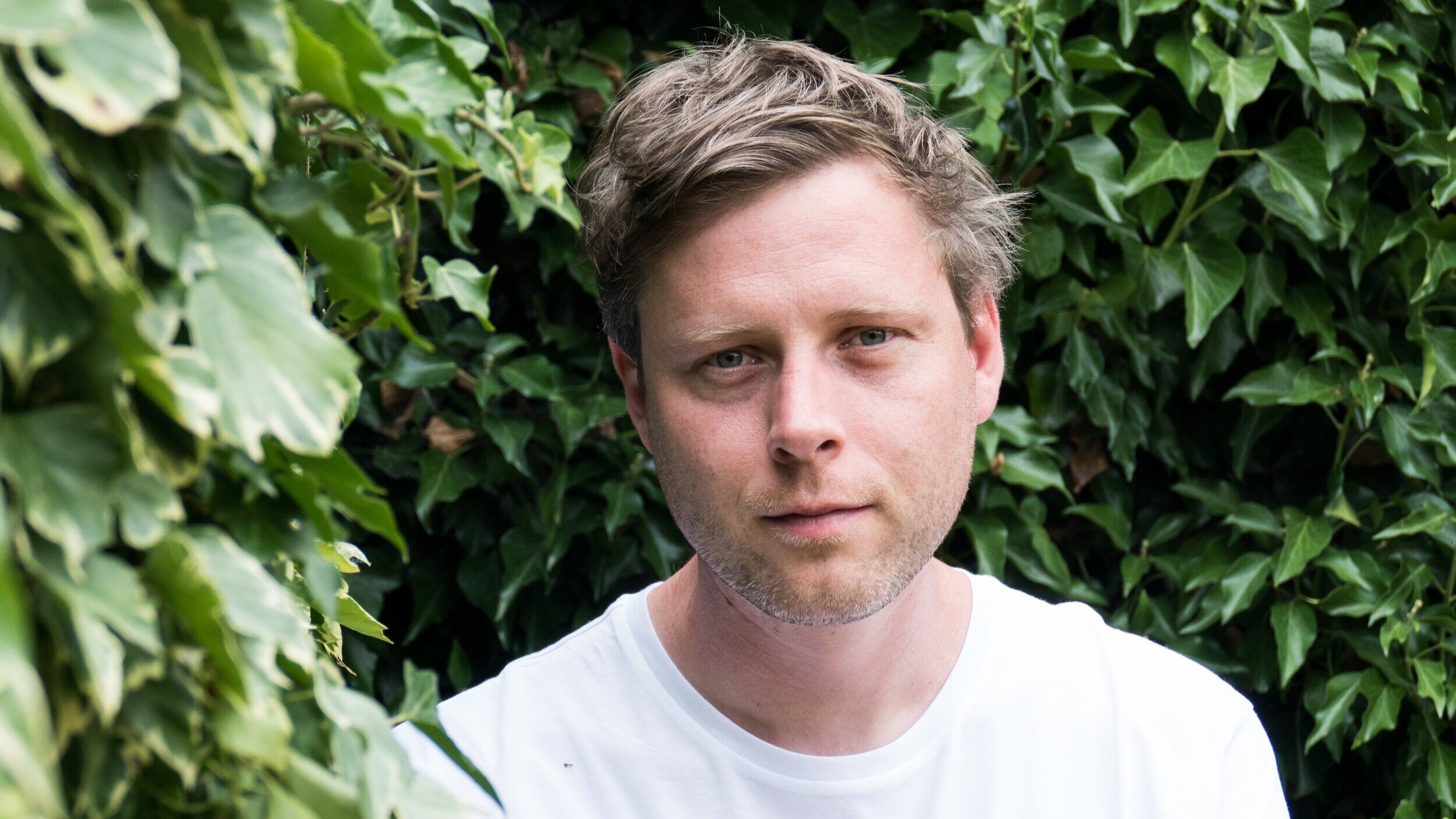Q&A: Max Porter
The author of Grief is the Thing with Feathers on struggling with adulthood, working too hard and needing to escape the self-absorbed life of the novelist
Interview: Emily Jupp
Images: Lucy Dickens
Grief is the Thing with Feathers, Max Porter’s award-winning debut about a crow that moves in with a bereaved family, was a startlingly innovative mediation on the funny and awful things grief does. His new novel, Lanny, is a story entwining folklore and poetry with the story of a couple whose son disappears. He is speaking at the Daunt Books Festival in Marylebone in March.
What are your fondest corners of Marylebone?
I’m 38, and about 20 years I worked in Marylebone at Daunt Books. I remember when I first moved to London as a student and went to Marylebone, the difference between that and five years later was just incredible. It went from being a kind of slightly scruffy spot to almost how it is now: a very chic place.
Daunt is an amazing place to just chat with people. When I worked there, Miriam Margoyles used to come in and be incredibly good fun. And then there was a very, very, very old concert pianist and she invited me to come round. I just went and had a drink with her in her huge soundproof Georgian flat. So those sorts of things are quite fun.
I live in Bath now but I always come and say hello at Daunt every six months or so. I also go to that very good Oxfam book store, and I when I lived in London I used to buy my wife a pair of Tracey Neuls shoes, and there was that ribbon shop...
You’ll be at the Daunt Books Festival in March to present Lanny, your new novel, alongside Mark Waters and Kate Gathercole of folk music duo Alula Down.
Mark is a double bassist and Kate plays the harmonium and sings and they create this incredible electronic drone and it sort of loops with bits of English folk songs to make the village voice [in Lanny, the village is a gestalt entity of whispers and gossip]. What they have achieved as an interpretation of Lanny is beautiful and awesome and we sort of slightly improvise it. I’m just standing up and telling the story, doing the voices. It’s somewhere in between going to a folk gig and a bedtime story.
Lanny is being made into a movie with Rachel Weisz as producer and star. Are you buddies now?
I think we will be buddies, but no, nothing’s happened yet. All they’ve done is assign people to it. I think it will be in production later this year. But no, she’s been off having a baby, so I thought I’d leave her alone for now.
What will the film be like? Your book is quite strange and dreamy and straddles folklore and childhood and the adult world.
It’s going to be much more about the mum, Jolie. It’s going to be about her psychological distress and the loss of Lanny. It’s not really so much about the fact that he goes missing. It’s about the loss of childhood, really. What is the future now for children? What do you tell them? So it’s going to be about the world we live in. The early signs suggest it will be a really interesting and unusual film, so I’m really chuffed.
What about the next book?
It will probably be a book of small pieces. Yeah. I want to not fixate on a big thing because I’ve taken on all this extra stuff.
Grief is the Thing with Feathers was an unexpected success. It was winner of the 2016 International Dylan Thomas Prize, shortlisted for the Guardian First Book Award and the Goldsmiths Prize and adapted for the stage in a play starring Cillian Murphy and directed by Enda Walsh. Were you surprised, or did you know you were on to something?
I saw the whole spectrum. I went from thinking only I would read it, then the slightly nervous thing of thinking I would let my wife and my mate read it, and then going, fuck, it’s going to be published, isn’t that odd? Then it went from Faber thinking about 600 people would buy it, to it being a huge thing. Now I think it will probably be the book of mine that people will still read in the future. It’s been translated into hundreds of languages and that’s an odd thing because it was very private. I guess that’s what makes it valuable to people: there is some truth in it.
I wanted to work out how one could tell the truth by moving further away from a realist truth, how an imaginary crow or the apparent investigation of another poet’s work could in fact come to be quite useful devices for telling the truth or for trying to look as accurately as possible at childhood, misremembrance, memory, all that kind of stuff. If I had actually written a candid account of my experience of losing a parent as a child [Max’s father died when he was six], I think it would have been very, very difficult to generate any energy.
That was a private reckoning I was doing in the evenings. It was escapism, getting away from other people’s books and back into my own head. I was also trying to figure out whether poetry, prose, children’s books or play scripts were the thing for me. I was wandering around in the bookshop, if you like, wondering what section I wanted to be in and realising that actually I could borrow a bit from all the sections.
Children, and the way they think, are written really well in both the books. Are you in touch with your inner child?
Well, I just recently had a fight with my wife where she said that I am very childish and I found myself obliged to be defensive and say, “No, I’m not.” And then I realised that it’s a very good explanation of my whole life. I struggle slightly with adulting. I find the modern world very strange and baffling and therefore I want to be back in my childhood. You can’t really say you have a Peter Pan complex anymore, because that reveals some deep-seated weird psychosexual stuff, but I miss childhood and I miss the kind of darkness of it.
One of my sons was saying to me the other day about this dream he’d had and how he couldn’t shed the dream from his waking day. I remember how vivid that was and how as an adult you’re sort of obliged to get past that and focus on the earning of money and the gradual sort of plodding towards death. And I remember thinking like, yeah, I want to be that scared again.
How has being a parent changed your thoughts about childhood?
I don’t want to over-romanticise my relationship with my children. It’s a pain in the arse most of the time. Most of the time what they do is distract and annoy me. But I’m engaging with them. My oldest is only 10, but he is asking about Trump and populism and Boris Johnson and stuff. He’s interested. He reads the paper. Do I censor what I tell him or do I tell him the truth? Do you feed their curiosity or do you protect them from the world? And I think these questions have never been more important, really. We’re supposedly living in the ecological end-times. What does that mean for the cheerful raising of kids?
What’s it like being a full-time writer?
My whole life is work now. And that’s not healthy, I don’t think. I’ve taken on so many collaborations—at the last count, 27 different collaborative projects in a year. That’s good for the culture but it does mean that I’m just incredibly busy the whole time and don’t do much sitting and thinking. I don’t mind sharing this with you, but it’s extremely shameful: as we left the house just before Christmas, my four-year-old said, “Do you have your phone on you?” And I said, “Yeah, why?” And he said, “Oh, no reason. I just guess that means you won’t talk so much.” It’s true: our phones have turned us into zombies in ways that we would just have found hilarious even 10 or 20 years ago.
What can you do about that?
I’m turning off my phone, making sure that I am giving them my attention, and what I’ve decided to do is actually have time in my week where I sit and think about what I’m up to and what have I achieved.
I had a crippling sense of moral panic last year. Like, what is a person supposed to do now? Should I be on the street protesting? Should I be with the children? Should I feel so much burning rage at the state of the nation that I should be standing in the square screaming? Then I found that actually getting myself out of the house down the road into the space of a homeless charity or a school or just doing something that isn’t about me is the perfect antidote to the self-absorbed life of a novelist.
And I’m also taking swimming lessons because I’m a big fan of swimming, but I’m not actually technically very good at it. So someone is teaching me to do front crawl. And I’m learning to whistle.

